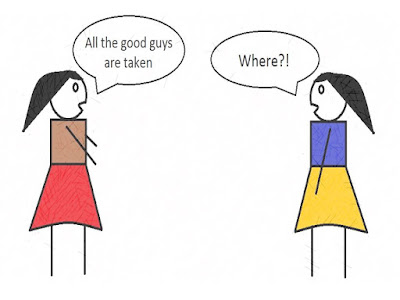Do parents prefer sons or daughters?
Reproductive potential
Now, there are a lot of variables that can influence reproductive success but the most important of them all is ‘availability of resources’.
There is a direct relationship between the reproductive success of males and their resourcefulness.
These parents seemed to unconsciously understand that in tough economic conditions reproductive certainty became more important than higher reproductive potential.
Even more intriguing is the fact that such preferences also exist at the womb level. When resources are scarce, female biology suppresses boys’ survival in the womb. The result being that mothers give birth to fewer males than normal.
Here’s a short video discussing this…
References:
Cameron, E. Z., & Dalerum, F. (2009). A Trivers-Willard effect in contemporary humans: male-biased sex ratios among billionaires. PLoS One, 4(1), e4195.
Durante, K. M., Griskevicius, V., Redden, J. P., & White, A. E. (2015). Spending on daughters versus sons in economic recessions. Journal of Consumer Research, ucv023.
Why do humans engage in warfare
at all? At first blush engaging in warfare seems to make no evolutionary sense. After all, if survival and reproduction are our core needs, why would we ever want to engage in an activity where the chances of us getting killed are so high?To understand why this happens we first need to look at why we engage in risky behaviors at all…Choosing risky behaviors A risky behavior may simply be defined as a behavior which has the potential to incur huge costs to the person doing that behavior.Starting a business can be a risky behavior because you might end up wasting time and money if you’re unsuccessful; proposing to your crush can be a risky behavior because you might get rejected; investing in the stock market can be a risky behavior because you might end up losing your money.And engaging in warfare can be a risky behavior because you might get killed- the ultimate loss.Yet people start businesses, propose to their crushes, invest in the stock market, and engage in warfare. Why?It’s because the potential benefits of these behaviors can outweigh their potential costs. A risky behavior is that where the potential benefits and costs are both huge.An entrepreneur can become a millionaire by starting a business, so can a person investing in the stock market, and proposing to your crush may lead to a relationship. These are all benefits that some people believe are worth taking huge risks for.But what are the potential benefits of engaging in warfare?Evolution of warfare Warfare is an activity pursued exclusively by men. Their intended victims are most often other men, although women frequently suffer as well.Men have physical adaptations that facilitate success in a war. Men exceed women in upper body strength; the average man is nearly twice as strong as an average woman in the chest, shoulder, and arm strength. Men show superiority in throwing distance and throwing accuracy, which would facilitate combat involving rocks and spears (weapons that we used for most of our evolutionary history). The psychological adaptations include the tendency to form coalitions (gangs) that explicitly exclude women. One of the strongest fears of men is to act cowardly in a battle and they experience great excitement, glory, and a sense of brotherhood at the prospect of war (think all-male modern sports competitions).But for warfare to evolve, certain important conditions need to be met. All these conditions are designed to make men perceive the benefits of engaging in warfare greater than the potential costs. Let’s go over these conditions…First and foremost, in order to pass on its genes to the next generation, an animal typically requires resources (food and land) and mates. The ideal way to gain more resources is to gain more land. Gaining more land also provides sexual access to mates.As you can see, if you gain more land (especially fertile lands), your reproductive success is more or less guaranteed to increase. Although few wars are initiated with the stated intent of capturing women, gaining more copulations is almost always viewed as the desired benefit of successfully vanquishing an enemy. Secondly, members of the coalitions must believe that their group will be victorious and that the collective resources of one’s coalition will be greater after the aggressive encounter than before it. Since the potential costs of war are huge, you require a great deal of motivation in the opposite direction to successfully outweigh them. By promising your soldiers that they’re going to get huge rewards when they’re victorious, you’re able to boost their morale.Note that wars are essentially carried out in coalitions. This is because, in a war, there’s always a risk of death. If you go alone to a battle, you have a 100% chance of getting killed. If you go with 10 men, your chance of getting killed is 1/10 (10%), which is quite low compared to the previous case but kind of high given we’re talking about as such a precious resource as human life. But when more people accompany you, your probability of getting killed decreases significantly. The greater the number the better it is for each individual. If 100 people go to war, the probability of each person getting killed would be 1/100 (1%) and if 1000 people go to war then this probability would be 1/1000 (0.1%), which is very low.As you can see, forming large coalitions enables men to share the huge risks that wars carry. This tips the scale more toward the benefits side of engaging in a war.Consider what happens when an army has been subdued and the numbers are reduced, say from 1000 to just 100. The probability of each member getting killed is dramatically increased from what it was at the initial stage. This often results in surrender or what is known as the ‘battlefield panic’ where a group of men thinks it wiser to defect and save their lives than to continue. Chimps frequently patrol the borders of their territory, sometimes raiding, attacking or even killing their neighbors.Conclusion To summarize, engaging in a war has the potential of providing men with huge benefits in terms of resources and reproductive success but in order to motivate them to go to war, the huge costs associated with war have to be reduced.If you look at history, men have created all kinds of expansionist ideologies and under the guise of fighting for or defending their ideologies, all they actually ever fought for was land, power, resources and women.References:Why do chimps kill each other?More males mean more territory patrols, study shows
Chimps frequently patrol the borders of their territory, sometimes raiding, attacking or even killing their neighbors.Conclusion To summarize, engaging in a war has the potential of providing men with huge benefits in terms of resources and reproductive success but in order to motivate them to go to war, the huge costs associated with war have to be reduced.If you look at history, men have created all kinds of expansionist ideologies and under the guise of fighting for or defending their ideologies, all they actually ever fought for was land, power, resources and women.References:Why do chimps kill each other?More males mean more territory patrols, study shows
- « Previous Page
- 1
- 2
- 3
- 4
- …
- 18
- Next Page »
